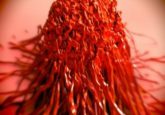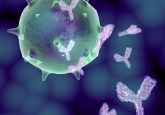Immunosuppressive prostate cancer therapies may promote relapse
Medical androgen-deprivation therapies (ADTs) are the most common nonsurgical treatment used for prostate cancer. A recent study carried out at UT Southwestern (TX, USA) suggests that the use of such ADTs may suppress the adaptive immune system, thus preventing any immunotherapies being used in conjunction from working if therapy is not appropriately sequenced
“Medical ADTs have been used for a half century to treat prostate cancer, and promising clinical results for cancer immunotherapy have led to attempts to combine it and other standard-of-care therapies with immunotherapy to treat the disease,” commented senior author Yang-Xin Fu of UT Southwestern.
Recently published in Science Translation Medicine, the investigation suggests that suppression of the immune response as a result of ADT not only reduces the efficacy of immunotherapy, but may also promote prostate cancer relapse.
“While surgical ADT – castration – works well with immunotherapy, we determined that some androgen receptor antagonists could reduce the T-cell response against prostate cancer, leading to early tumor relapse,” Fu stated.
“Our study shows that in some patients, this poor response could also be due to the radiation or chemotherapy itself suppressing the immune response,” Fu explained. “These treatments may reduce the tumor burden in the short term, but at the same time, they can suppress the immune response – and because they don’t kill every cancer cell, resistant clones will be selected, especially when the body’s immune response is not mobilized, and the tumor will relapse much more aggressively.”
The study highlights the need for vigilant regulation of how antiandrogens are being used alongside immunotherapies in terms of timing, types, and dosages to ensure the maximum antitumor effects of combination therapy.
“The findings also highlight an underappreciated mechanism of androgen receptor antagonist-mediated immune suppression and provide a new strategy to enhance the immune response and perhaps prevent or delay the relapse of advanced prostate cancer,” Fu continued. “We hope that our findings will cause physicians to think twice before starting chemotherapy or radiation on their cancer patients, to consider the best way to combine them with immunotherapies.”
Source: UT Southwestern press release




